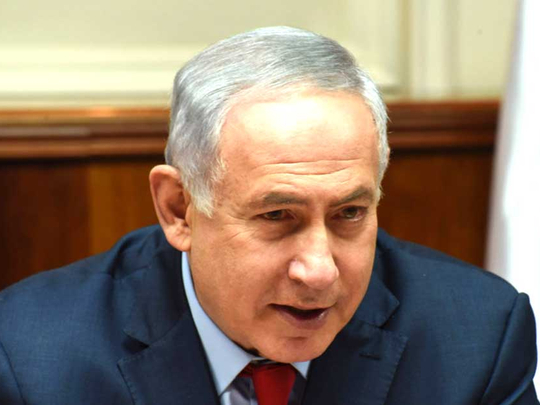
A majority of the Israeli/Jewish community is currently characterised by the ‘Jewish spirit’ associated with fanatical Zionist nationalism, which has fostered a culture of hatred against ‘the other’ regarding him or her as inferior. This took roots when Judaism turned from a religious creed to a Jewish one with hostile sentiments as clearly perceived in the policies of the government of Israeli Prime Minister Benjamin Netanyahu. Former Israeli cabinet minister Uri Savir rightly described the current Israeli government as “basically the opposite of everything, looking for conflict and dispute and is full of hatred and racism. It is a government of settlement (i.e. colonisation) and annexation, endangering Israel’s Jewish and democratic identity, isolating it from the world. The continuation of such a policy will lead us into a Greek tragedy”.
Increasing number of politicians, professors, journalists and observers have noticed that Israel has moved at an accelerated pace towards the consolidation of fascism, racism and extremism within the Israeli society and the state institutions that may ensure the survival and continuity of the extreme right in power for years to come, which reflects on the Palestinian people in historic Palestine — both in the 1967 Occupied Territories and Arab lands occupied in 1948. It is quite obvious that it is a state shifting fast towards extremism and violence on a daily basis against all that is Palestinian — as if an Israeli learns since his or her birth that death is equivalent to seeing a Palestinian breathe, and that killing him or her is not a significant matter. Currently, a large proportion of the Israeli society is recklessly dealing (almost accepting) with the Israeli soldiers’ acts of discrimination, killing and torture of Palestinian people. In this regard, Israeli journalist Gideon Levy, from Israeli daily Haaretz, has described such a situation saying that “the state would be angry if a Jewish man is killed by security forces according to a preconceived ethnic/political categorisation; and if the victim is Ethiopian, the fuss is less, if he is Haredi (fanatic Jew) it will be louder. But if he was a colonist, this would be the end of the world! Main headlines: An inquiry commission, a settlement (colony) outpost carrying his name in compensation and a day devoted to his memory defined in the law. But what a coincidence: Demonstrators who are shot and killed in Israel are always Arabs, as well as the thieves who are always shot and killed are almost Arabs. What an amazing coincidence!”
In this context, Israeli political analyst Chemi Shalev says that “crooks and instigators are leading the scene in the political arena and in social networks with the entire Israeli Right behind them. It is no exaggeration to say that the moderate right-wingers who want to build bridges with the rest of the Israeli political spectrum (i.e. both the Palestinian Arabs and the Jewish secular/liberal/leftists) have been expelled from the arena and replaced by those who want to burn these bridges. They can be called neo-rightists, and their most prominent feature is the contempt for democracy, pluralism, freedom of expression, the rule of law and the principle of equality in human rights and values. They love the land of extremist nationalist Israel and label as ‘self-hating Jews’ all the leftist, secular and other Israelis who hold on to what is left of the ‘democratic Jewish state’ slogan”.
Journalist Zeev Sternhell believes that “in the reality of Israel, many are trying to push human rights to the margin on the pretext that they belong to the field of law, while the occupation is a political issue, throwing dust in the eyes, seeking to turn human rights to an open subject of negotiations between the two parties, such as the issue of borders, instead of regarding it as a matter of significance to our human personality. This is what can be said to a Palestinian who is subject to a harsh colonial regime and whose rights are crushed by force every day; everything is tied to negotiations, even if it continues for decades”. Sternhell goes on to say that “If we, the Israelis, have human rights, we do not have the right to deprive Palestinians of them with whom we have a national struggle or in a war with them over division of the land. Power supremacy does not produce better rights. It can create facts, but not values”.
“Israel continues to shift to the right”, says Shabtai Shavit, former director general of Israeli spy agency Mossad between 1989-1996 and “continues to develop colonies and impose law on the West Bank with the aim of annexing it. Israel is expected to be defined as an apartheid state and will be faced with boycotts and sanctions. Then the military threat will increase and (terrorist) acts from the territories and Gaza will be heightened”.
What is currently going on in Israel reflects a general governmental, institutional and popular direction. The right-wing leaders in state institutions, along with the majority of extremists and colonists, are fighting to suppress the Palestinians as if they were in a competition on who leads the right-wing camp. Each time this competition takes place at the expense of the Palestinians and their rights, whether in land confiscation law or through the enactment of hundreds of other laws that deepen the roots of occupation and Judaisation, legalise colonies and pave the way to establish a racist fascist regime.
Professor As’ad Abdul Rahman is the chairman of the Palestinian Encyclopaedia.








